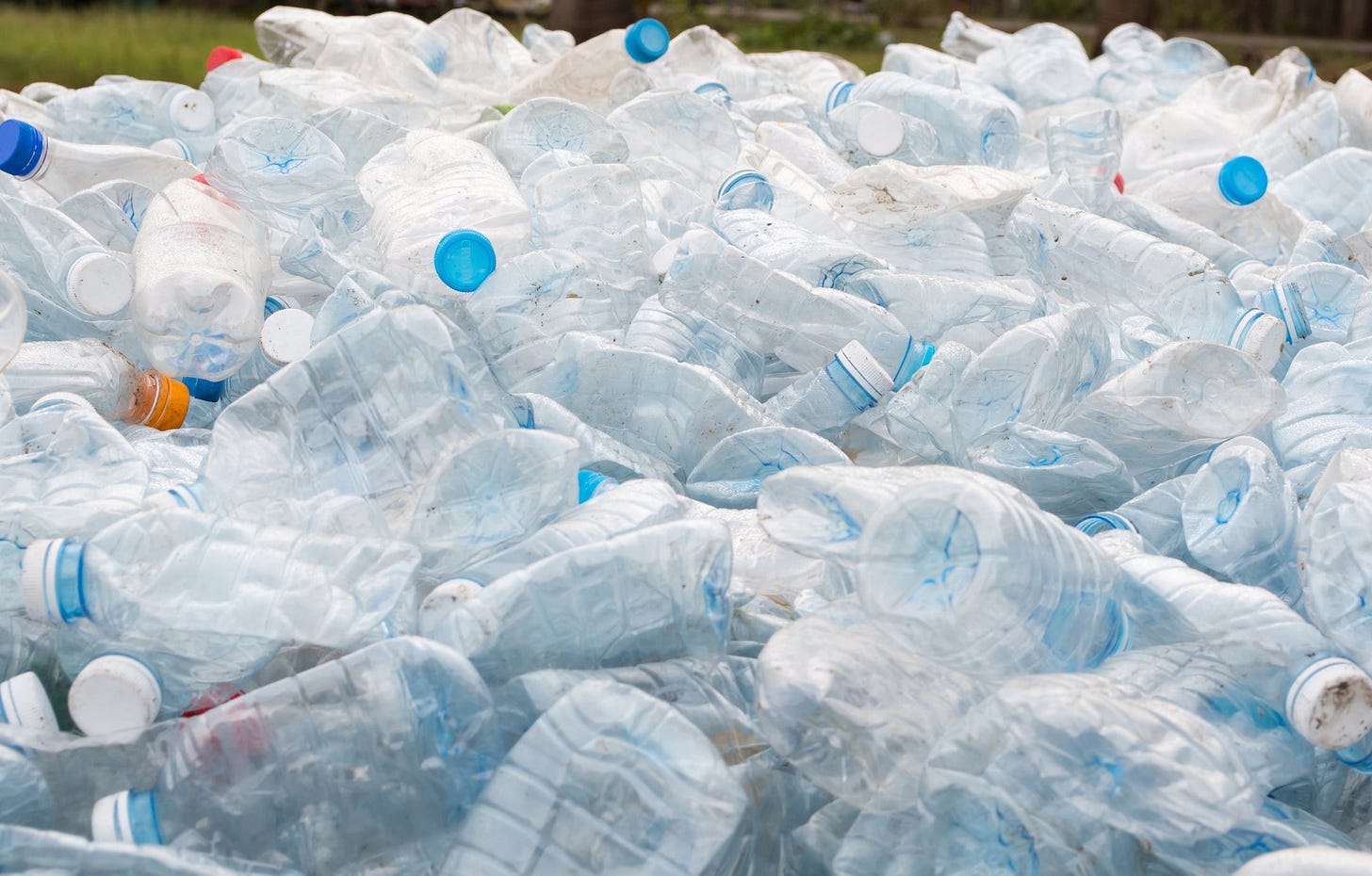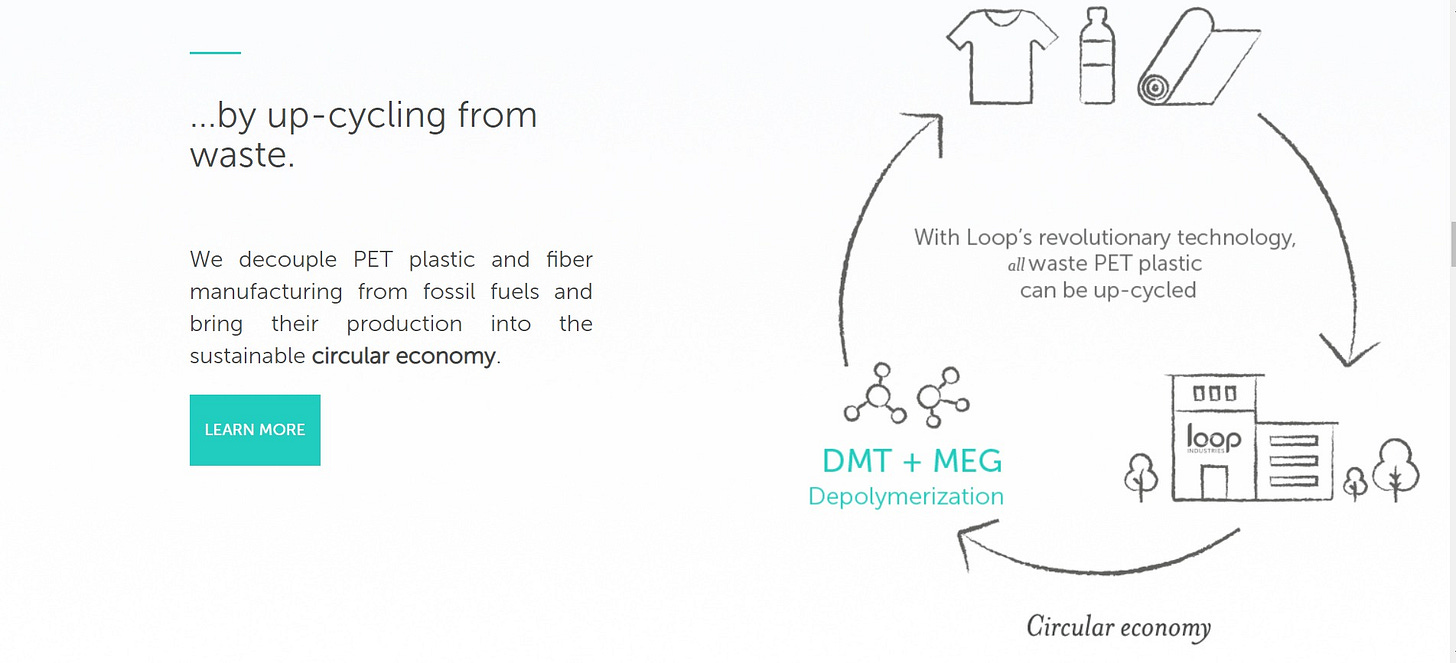
(NASDAQ: LOOP)
Loop Industries has never generated revenue, yet calls itself a technology innovator with a “proven” solution that is "leading the sustainable plastic revolution". Our research indicates that Loop is smoke and mirrors with no viable technology.
As part of our investigation, we interviewed former employees, competitors, industry experts, and company partners. We also reviewed extensive company documentation and litigation records.
Former employees revealed that Loop operated two labs: one reserved for the company’s two twenty-something lead scientist brothers and their father, where incredible results were achieved, and a separate lab where rank-and-file employees were unable to replicate the supposedly breakthrough results.
The two brothers who act as lead scientists for Loop and who co-invented Loop's recycling process appear to have no post-graduate education in chemistry and list no work experience other than Loop.
A former Loop employee told us that Loop’s scientists, under pressure from CEO Daniel Solomita, were tacitly encouraged to lie about the results of the company’s process internally. We have obtained internal documents and photographs to support their claims.
Loop focuses on recycling a common form of plastic called “PET”. According to a former employee, Loop’s previous claims of breaking PET down to its base chemicals at a recovery rate of 100% were “technically and industrially impossible”. The same employee told us the company's claims of producing "industrial grade purity" base chemicals from PET were false.
According to litigation records, Loop’s CEO, Daniel Solomita hired a convict, who had previously pled guilty to stock manipulation, to help raise Loop's startup capital. That convict introduced Solomita to another convict who facilitated Loop’s first investment.
Solomita has no apparent formal science background but has a history of stock promotion at another publicly traded company that subsequently imploded.
Executives from a division of key partner Thyssenkrupp, who Loop entered into a "global alliance agreement" with in December 2018, told us their partnership is on "indefinite" hold and that Loop "underestimated" both costs and complexities of its process.
We contacted Loop’s other partners, including Coca-Cola and PepsiCo, most of whom refused to divulge whether any plastic had been recycled as part of their partnerships with Loop. Comments from Danone, owner of the Evian brand, suggested it had not bought any PET from Loop thus far. We suspect these partnerships have gone nowhere.
Loop’s JV with PET and chemical company Indorama, promoted frequently over the last two years as an imminent revenue stream, is "still being finalized", according to an employee, despite being announced in 2018. An Indorama employee told us no production has taken place thus far.
We expect Loop will never generate any meaningful revenue. With a market cap of ~$515 million, we see 100% downside to Loop once it burns through its ~$48 million in balance sheet cash.
We have submitted our findings to regulators.
Initial Disclosure: After extensive research, we have taken a short position in shares of Loop Industries. For members of the media who wish to independently corroborate our work please contact us for introductions to whistleblowers and other sources on condition that their anonymity is maintained unless they explicitly agree to go on-record. This report represents our opinion, and we encourage every reader to do their own due diligence. Please see our full disclaimer at the bottom of the report.

We think Loop’s claimed breakthroughs, which represent the entirety of its business prospects, simply don’t exist. We also think investors in Loop deserve answers to the following questions:
Was Daniel Solomita aware that Henry Lorin was a convict who had pled guilty to securities fraud charges when he was engaged to help raise early capital for Loop?
If so, why did you hire a convict to help with your early capital raising efforts?
Were you aware that Lance Bauerlein was under an active indictment for criminal securities fraud charges when you met with him to help facilitate Loop’s initial $80,000 investment?
Did you expect that appointing two inexperienced individuals in their twenties with no post-graduate education in the sciences would yield a revolutionary breakthrough in the field of plastics recycling?
According to several former employees, the R&D lab run by the Essaddams was producing results that couldn’t be replicated outside of their lab. How do you respond?
Why does the company have two distinct labs? Is it best practice to limit access of the company’s scientists to a lab where major breakthroughs are said to be occurring?
Loop’s competitors have published advancements and findings in scientific journals. Can Loop point us toward any relevant publications? If not, why has Loop not done this, despite all of the company’s claimed breakthroughs?
When Loop claimed in 2017 that it was able to break down PET to its monomers at industrial grade purity, had MEG been consistently and successfully isolated at the time? Former employees state that it was mixed with dyes, water, and solid wastes. How do you respond?
In 2016, Loop claimed to break down PET at a recovery rate of 100%. A polymer expert with over three decades of experience and former employees have described this recovery rate as “impossible”. How do you respond?
Can you quantify exactly how much plastic Loop has recycled in conjunction with L’Oreal, Coca-Cola, and Danone since the announcement of these partnerships? Has there been any offtake from these companies, and if so, how much?
Have L’Oreal, Coca-Cola, Pepsi, and Danone actually seen the entire Gen II process work from start to finish, using actual post-consumer waste PET?
Why has it taken over 2 years to finalize terms of the joint venture with Indorama? Further, why did the company recently engage new partners instead of furthering its cooperation with Indorama?
What is the status of the Drinkfinity partnership, given that the website doesn’t even appear to function?
Why were Drinkfinity bags made with LDPE when Loop can’t recycle that plastic?
We understand the company’s patents deal with depolymerization, but we also know these methods to be relatively well known already. Does the company have a patent on any specific purification methods that can be proven to purify PET monomers in way that exceeds the industry’s current best practices at an industrial scale?
We look forward to Loop’s answers to all of the above questions.

Disclosure: We are short shares of Loop Industries (NASDAQ:LOOP)
Legal Disclaimer
Use of Hindenburg Research’s research is at your own risk. In no event should Hindenburg Research or any affiliated party be liable for any direct or indirect trading losses caused by any information in this report. You further agree to do your own research and due diligence, consult your own financial, legal, and tax advisors before making any investment decision with respect to transacting in any securities covered herein. You should assume that as of the publication date of any short-biased report or letter, Hindenburg Research (possibly along with or through our members, partners, affiliates, employees, and/or consultants) along with our clients and/or investors has a short position in all stocks (and/or options of the stock) covered herein, and therefore stands to realize significant gains in the event that the price of any stock covered herein declines. Following publication of any report or letter, we intend to continue transacting in the securities covered herein, and we may be long, short, or neutral at any time hereafter regardless of our initial recommendation, conclusions, or opinions. This is not an offer to sell or a solicitation of an offer to buy any security, nor shall any security be offered or sold to any person, in any jurisdiction in which such offer would be unlawful under the securities laws of such jurisdiction. Hindenburg Research is not registered as an investment advisor in the United States or have similar registration in any other jurisdiction. To the best of our ability and belief, all information contained herein is accurate and reliable, and has been obtained from public sources we believe to be accurate and reliable, and who are not insiders or connected persons of the stock covered herein or who may otherwise owe any fiduciary duty or duty of confidentiality to the issuer. However, such information is presented “as is,” without warranty of any kind – whether express or implied. Hindenburg Research makes no representation, express or implied, as to the accuracy, timeliness, or completeness of any such information or with regard to the results to be obtained from its use. All expressions of opinion are subject to change without notice, and Hindenburg Research does not undertake to update or supplement this report or any of the information contained herein.
Hindenburg Research was founded by Nate Anderson, CFA, CAIA, and specializes in forensic financial research with a historical focus on equity, credit, and derivatives analysis.


